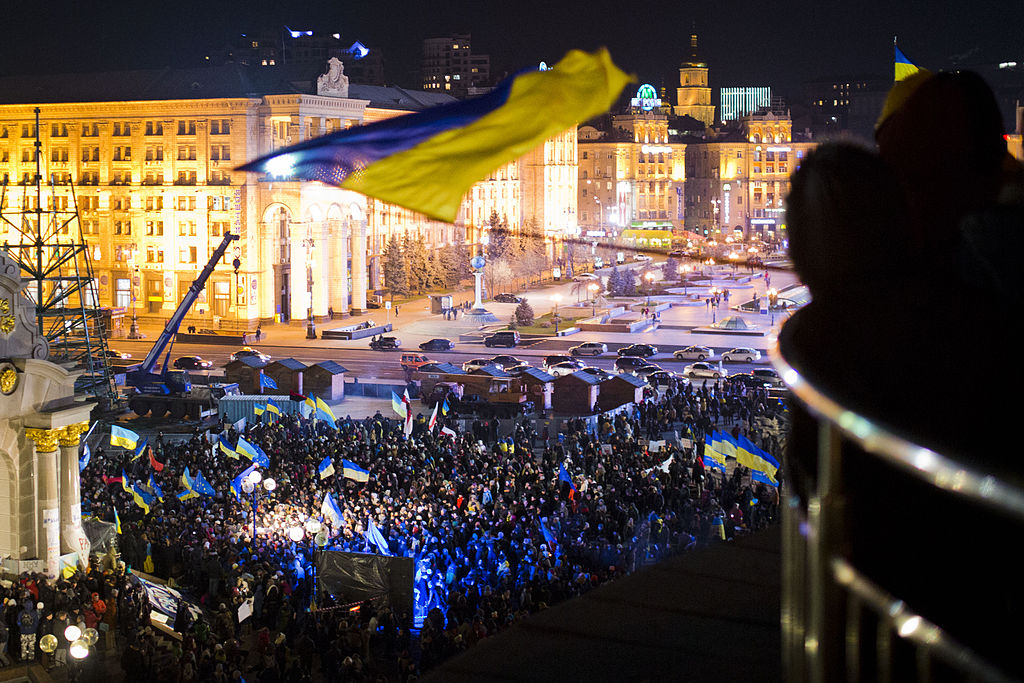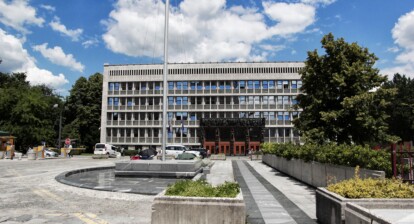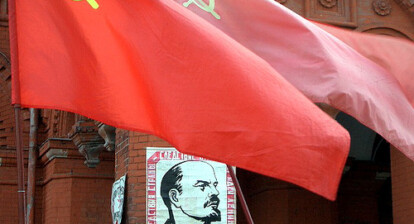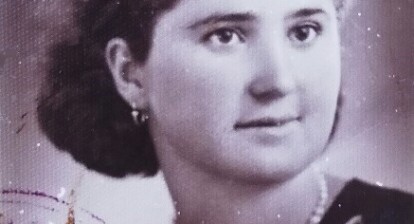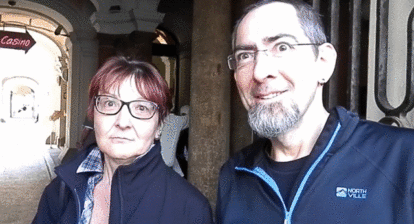The conflict between Ukraine and Russia is back on the international agenda.On a political level, we can trace all the steps in the series of armed confrontations. But how do young people experience these times? We talked with the young Ukrainians who were directly affected by the incidents five years ago: How did they experience the beginning of the war? How did it change their outlook on life?
In late November, Martial law was declared in the Ukrainian regions bordering Russia as well as the occupied territories. This escalation of the conflict is just another step in a series of armed confrontations, which erupted in early 2014 when nationalists supported by Russia began their military intervention in the Donbass region and Crimea, the latter one later being declared as part of Russia. Since then, the conflict only returned to the headlines when fights are increasing or a higher number of civilians are killed. Read here how these conflicts influenced young Ukrainians.
Halyna – Luhansk / Odessa
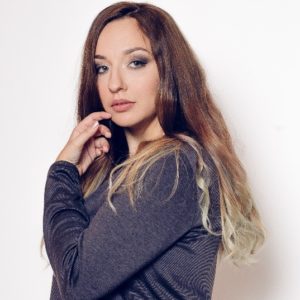
Halyna. (Photo: Private)
“I remember the night when Maidan was disbanded. I was watching the stream and did not understand how this is possible in the 21st century. ‘This is savage, barbarism, it’s not civilisation!’ – I wrote in the middle of the night to my friends, ‘how could it be true?’.
February 2014 came. I grew up in a single day. When you understand that someone died in order to make your life better in the future… It is a burden of responsibility. I learned that there was also Maidan in Luhansk. It was a new era in my life. It brought me as many friends and happy moments as pain of loss.
Then there was a war.
The war taught me to appreciate the simple things. For example, round-the-clock water from the tap. With daily restrictions for three months, it is like the eighth miracle of the world. You take a shower at night and cry from happiness.”
Varvara – Lenine (Crimea) / Zboriv (Ternopil Region)
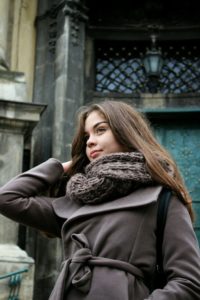
Varvara. (Photo: Private)
“I was an ordinary girl until I was 12. When the fall of 2013 came my parents began to watch news more often. They didn’t sleep at night, they argued with their parents. It was just the beginning.
I got to know one way of looking at the political situation at home and another at school. I had to tell my parents that I love and honour Ukraine. To my grandparents I was telling something different and to my teachers the third version… Everything to not be a victim of rumours or an outcast. I was between two chairs. At home, a complete national awakening. In public, indoctrination and Russification.
At one point everything went nuts. ‘We are moving!’ Everything got torn inside.
The last month of my life in my hometown. Welding with parents. ‘You are punished!’ It was a kick in my back. Well, that’s all. Train at 11 o’clock. I set off for a thousand kilometers from home, almost without saying goodbye to my friends. Smiles and sincerity were left behind.”
Mykhailo – Antratsyt (Luhansk Region) / Lysychansk (Luhansk Region)
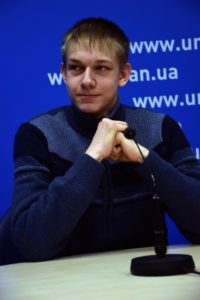
Mykhailo. (Photo: Private)
“It started in March 2014. Already, citizens of my hometown Antratsyt were divided into two camps: pro-Russian and pro-Ukrainian. One day there was a gathering at the Culture House named after Lenin. My dad thought that this would be a meeting to discuss both points of view, and we went there, taking a poster with the inscription ‘Putin, leave Ukraine!’ and a small Ukrainian flag. As dad took out the poster, many people pounced on him, who shouted: ‘Get out of here, bandera!’ My father replied: ‘Look at your passports and see citizens of which country you are!’ I was terrified for him, because they could simply beat him. My dad was kicked out and I followed him.
During a weekend I took a walk with my family. Military trucks, people with weapons were in the city. We saw cossacks organizing local separatists. It became clear that the war had come. We did not go to various demonstrations on May holidays as they were now marked with Russian glorification. On May 11, a referendum took place in our city, and its results formed the LPR (Luhansk People’s Republic). They will decide the fate of the city, so I have to leave my home.”
Yulia – Kramatorsk (Donetsk Region)
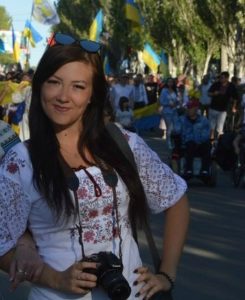
Yulia. (Photo: Private)
“I will never forget the spring morning of April 12, 2014, when it all began. I woke up with the curator’s voice instead of the alarm: ‘It’s not possible to go on with lessons today’. I was not interested in the reason for the cancellation of classes. Who needs explanation when you are a freshman, and a blooming spring is outside?
I lingered in bed until my mother went to the room. Her eyes wandered from corner to corner and could not focus on anything. Those were the eyes of a terribly frightened woman. ‘Our city hall was captured by unknown people’, she said.
I could not study the next day, the next week or the next month… More precisely, I could not return to University for another six months. Long after my return, the traces of bullets will be on the walls of our auditoriums.
The city was suddenly divided into ‘pro’ and ‘against’, ‘ours’ and ‘enemies’.. I did not understand where this division came from. Why am I still Ukrainian, and my neighbour, whom I known since my childhood, somehow hastily became Russian?
Very quickly my beloved town smelled of gunpowder, blood and death. People no longer smiled at each other on the street. They walked quickly, eyes lowered, because only like this they felt relatively safe.
At night, we usually did not sleep much. Fully dressed, we were waiting in the bath. When the shelling was finally over at dawn, we could have a little rest.”
Yelyzaveta – Luhansk / Severodonetsk (Luhansk Region)
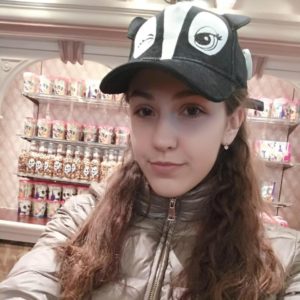
Yelyzaveta. (Photo: Private)
“I lived in a quiet and peaceful neighborhood of Luhansk. I really liked my school. Students always took part in various projects and contests. We performed concerts in different cities, even abroad.
In Febuary 2014 I watched in the news that people were killing each other. At this time, my parents bought a new apartment in the Myrnyi district. I liked my room very much. One morning at four o’clock, a shooting near my home began. I was in shock, I did not know what to do. My parents were called to work, and I was left alone.
I was only eleven years old. Near the house there were explosions, a parked car just burned. I do not know how I survived.
I had seen military actions in other countries on TV, but I never thought that the war would come to us. The parents returned home, and we escaped to the city of Severodonetsk, to my grandparents. This became the place where our lives began to change.”
Yelyzaveta – Luhansk
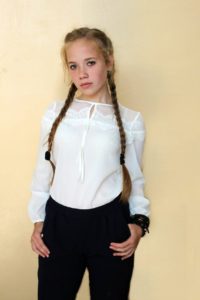
Yelyzaveta. (Photo: Private)
“When the war began, I was 12 years old. I lived in the city of Luhansk in the village of Jubilee together with my grandparents.
I was not allowed to go outside until 8 pm, because shots and explosions could be heard somewhere in the distance. I was still sleeping in the morning of July 19, when suddenly my mother came running into the house. She screamed to get up quickly and run after her. I did not understand anything, but as soon as we ran out into the street, a whistle rang out above our heads. Within seconds uncle Andrii, my mother and I jumped into the basement. And then there was an explosion. Powerful, terrible explosion. I did not restrain my emotions and yelled. I was very scared. Then there was another whistle and another explosion. And after – the dead silence… We left our shelter. Quiet…
The thought that if we left the house a few seconds later we would have been dead, was terrifying. We tried to turn on the light, but nothing happened. We did not have light for the next 3-4 months.
Now, my everyday life was filled with fear. Fear for life. I did not scream anymore. The sound of the whistles became familiar. The sound of explosions became ordinary.
We were left without light, without water. Fortunately, the neighbours had a well and they allowed us to use it. Every evening we sat at the yard table, and played board games. When it got dark, we went into the house to go to bed. The doors were left open, in case we had to hide quickly. That’s how the worst summer in my life passed…”
Khrystyna – Lviv
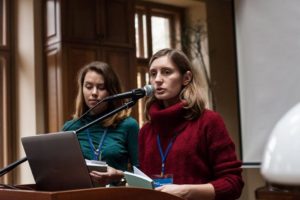
Khrystyna. (Photo: Private)
“When the war began, I was 18 years old.
My brother went to the military committee as a volunteer. He did it without our knowing. After boarding a train to Kryviy Rih, he phoned mom, telling about his deed.
Heroism was forgotten, there was an animalistic fear instead. My brother could die! The changes in legislation, the fight against corruption, crash of Boeing-777 – all have became irrelevant. Why should I worry about unhappy love of my friends, their self-made problems, quarrels with relatives and a bad education system, if my brother could be killed?! How to comfort parents? How to help? What’s better: winter shoes or off-season?
My brother was fighting in the war for one year and two months. In my memory, only gray and eternal prayer. My mother started to go to church nearly every day, and I did not go at all. ‘Too much hypocrisy for one square meter, and God hears me even in a shuttle bus’, I thought.”

